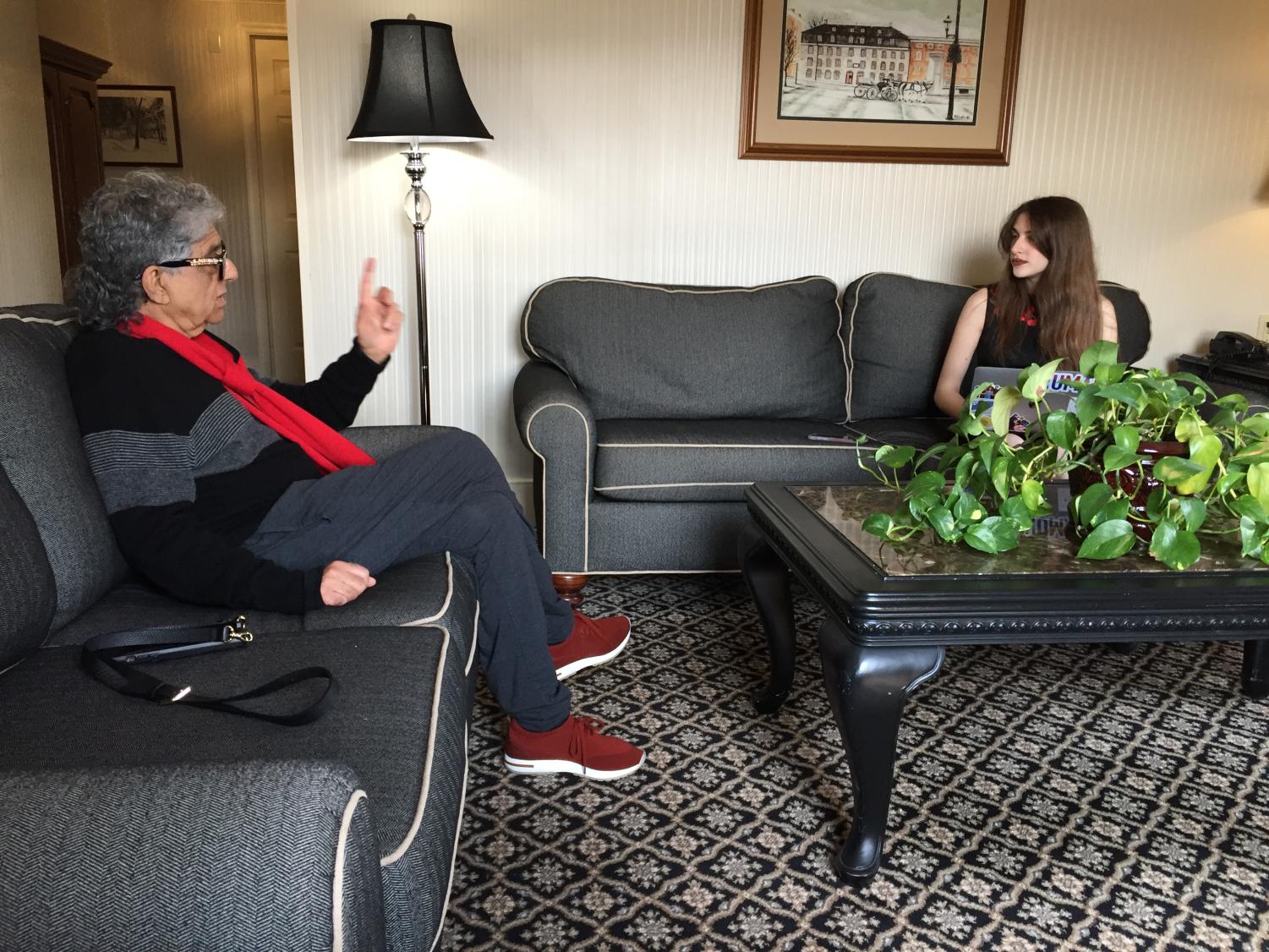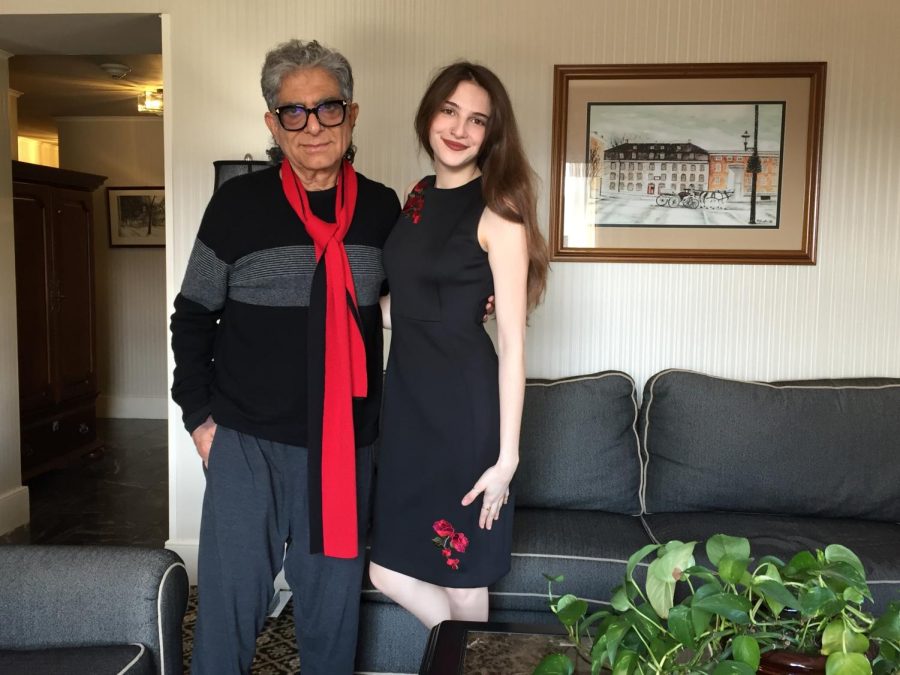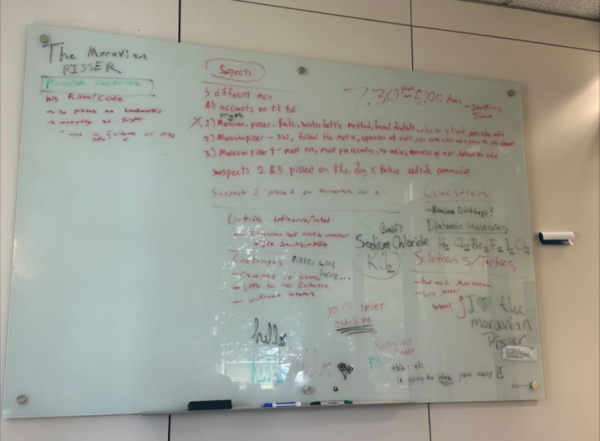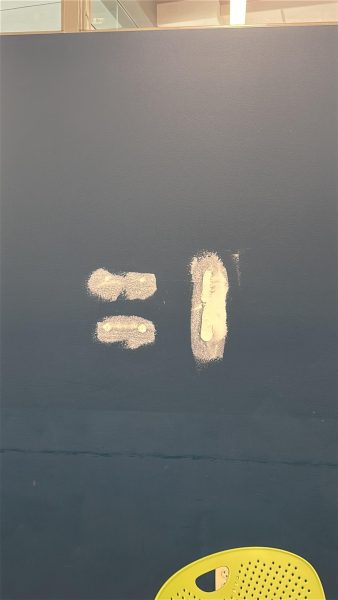6 Questions for Dr. Deepak Chopra
Since 2018, Moravian University has hosted The Rabindranath Tagore Distinguished Lecture Series, in honor of the late Bengali poet, philosopher, novelist, social reformer, and painter. On the evening of April 15, renowned physician and writer Dr. Deepak Chopra gave this year’s lecture in Johnston Hall. Earlier that day, I had the privilege of sitting down with Dr. Chopra in the Hotel Bethlehem and asking him about how we can live well in uncertain times. The following interview has been edited for brevity and clarity.
Attending a university can be stressful for students, especially when they are dealing with COVID, climate change, and now a war in Ukraine. How can they reduce their anxiety and stress, without ignoring any of the horrific events happening around the world?
As a student right now, your best, best option is to follow what the mythologist, Joseph Campbell said, “Follow your bliss.” And what “follow your bliss” means is to follow your life purpose once you know what your life purpose is. And then the only other option is for you to be the change you want to see in the world, in the words of Mahatma Gandhi. You have to be peaceful. If you believe in social justice, then you should act out social justice. If you believe in economic justice, then you should work for it. If you believe in climate change, then you should get engaged in sustainability. If you believe in health, then you should be healthy. And if you believe in joy, then you should be joyful. There is no other option. If you do that, you’ll be fine as a student,
How can college students maintain a healthy lifestyle?
You [should] observe the following things: seven to eight hours of sleep every day; stress management; walking 10,000 steps; healthy emotions, which means empathy, compassion, joy, and equanimity, love; and maintaining your biological rhythms, which is sort of body rhythms which you normally do, if you sleep on time and you wake up on time. [For that] 10:00 [pm] to 6:00 [am] is the ideal [schedule].
Then there are things like diet. The healthiest diet is one with a maximum diversity of plant-based foods. But if you eat meat, as long as it’s not coming from a factory, because factory-produced animals are given steroids, antibiotics, hormones, all kinds of poisons, you should be fine.
Then [practice] a little bit of self-awareness, being aware of the fluctuations of sensation. What is your body telling you? Your body is always telling you whether you’re tired and whether your body is energetic. Your body is the best sensor. You don’t need these devices. If you listen to your body, then you can avoid 95% of sickness.
But if students sleep that much, will they have enough time to study?
Actually, if you sleep well, you get better grades, irrespective. One hundred percent guaranteed; studies show that. Students who work or study all night, their grades aren’t as good as students who sleep well at night, because sleep restores creativity and all kinds of things.
How can college students eat well in the school cafeteria?
Every cafeteria should have healthy salads, should have fruit, should have fermented foods like yogurt. And you do need protein. Together, make a pitch for healthy meat if it’s there. Or minimize the intake of that. There are so many options. So you have to be creative. I know it’s a challenge, but that’s what challenges are. The opposite of challenges is creativity.
In your latest book – “Abundance” – you argue that fulfillment does not come from measuring success by material wealth. What is success, then?
I would define success as the progressive realization of worthy goals, number one. Number two, the ability to love and have compassion, and number three, always tap into creativity no matter what. If you have those three ingredients: progressive realization of worthy goals, love and compassion, tapping into creativity, you will be successful.
This idea that money makes people happy is only partially true. I actually wrote the book because I read a lyric by Bob Marley, who said, “Some people are so poor all they have is money.” So I started to look at, does money buy you happiness? The answer is no. Does money buy you security? The answer is no. Does money buy your self-esteem? No. Does money buy you creativity? No. Does money buy you insight? Intuition? Imagination? No. Does money buy you a higher conscience? No.
So what does money buy you? It buys you iPhones. If you get an iPhone then you want a nice, fancy car. If you get that, then you want a yacht, a nice fancy house, an airplane: it never ends. So abundance is more than just money.
You’ve written extensively about something called The Happiness Formula. What is it?
It is an equation that social scientists have developed: H = S + C + V. So H, which stands for happiness, is equal to S, the set point in the brain.
The set point in the brain is determined by your childhood upbringing. So if your parents, your peers, or your social environment in the first five years of life were constantly complaining, criticizing, and condemning, that’s [your] set point for unhappiness. But if your environment reflected attention, affection, appreciation, acceptance, the way a good mother does for the baby, and if they were looking for opportunities in the midst of adversity, that means the set point in the brain is for happiness.
Even though it’s programmed in childhood, [the set point] can be changed through reflection, meditation, mindfulness, or cognitive therapy. The setpoint determines about 50% of your happiness on a daily basis.
C is conditions of living: money, which is only 10% of your daily happiness. Two kinds of people are always stressed about money, the extremely poor and the extremely rich. For the extremely rich, it becomes their identity; they confuse net worth with self-worth. I like to say they sacrifice the self for the selfie. If somebody wins the lottery it makes them very happy for six months. One year, they plateau, and then it’s back to the setpoint.
The last part of the equation is called V, voluntary choices. There are two kinds of choices people make every day. One is for personal pleasure: shopping, sex, food; those choices make people happy but only transiently for a few days. Then you have to go shopping again. The other choice that you can make is called fulfillment. That’s when you have meaning and purpose in life. And also if you make other people happy. The fastest way to become happy is to make other people happy.
Did you know what your purpose in life would be at that young age or did that evolve?
It evolved. You knew I wanted to be a writer, always. My dad wanted me to be a physician. I ended up being both.
How would you suggest students discover their passions and purpose?
Ask yourself what you would do if you had all the money and all the time in the world, that’s one. The second is: How would you express your unique talents and who would benefit from them?








